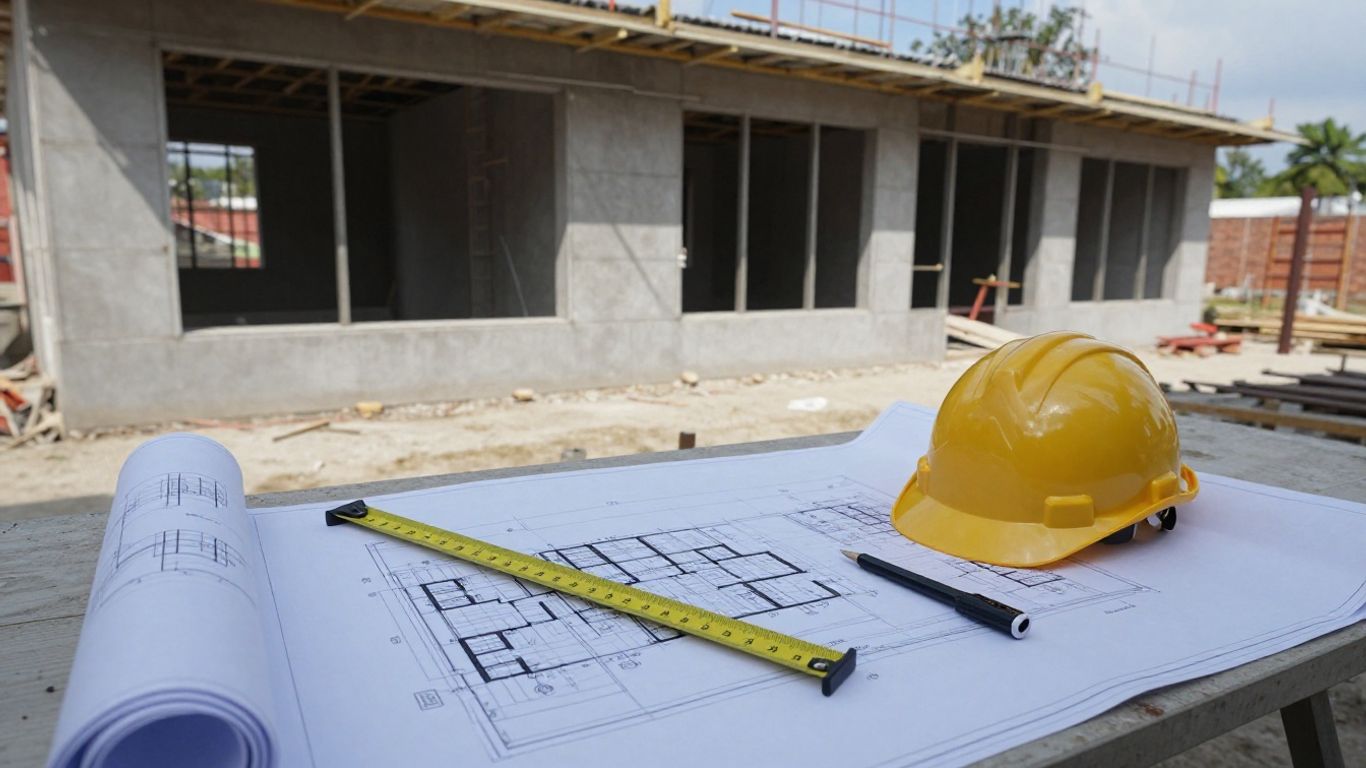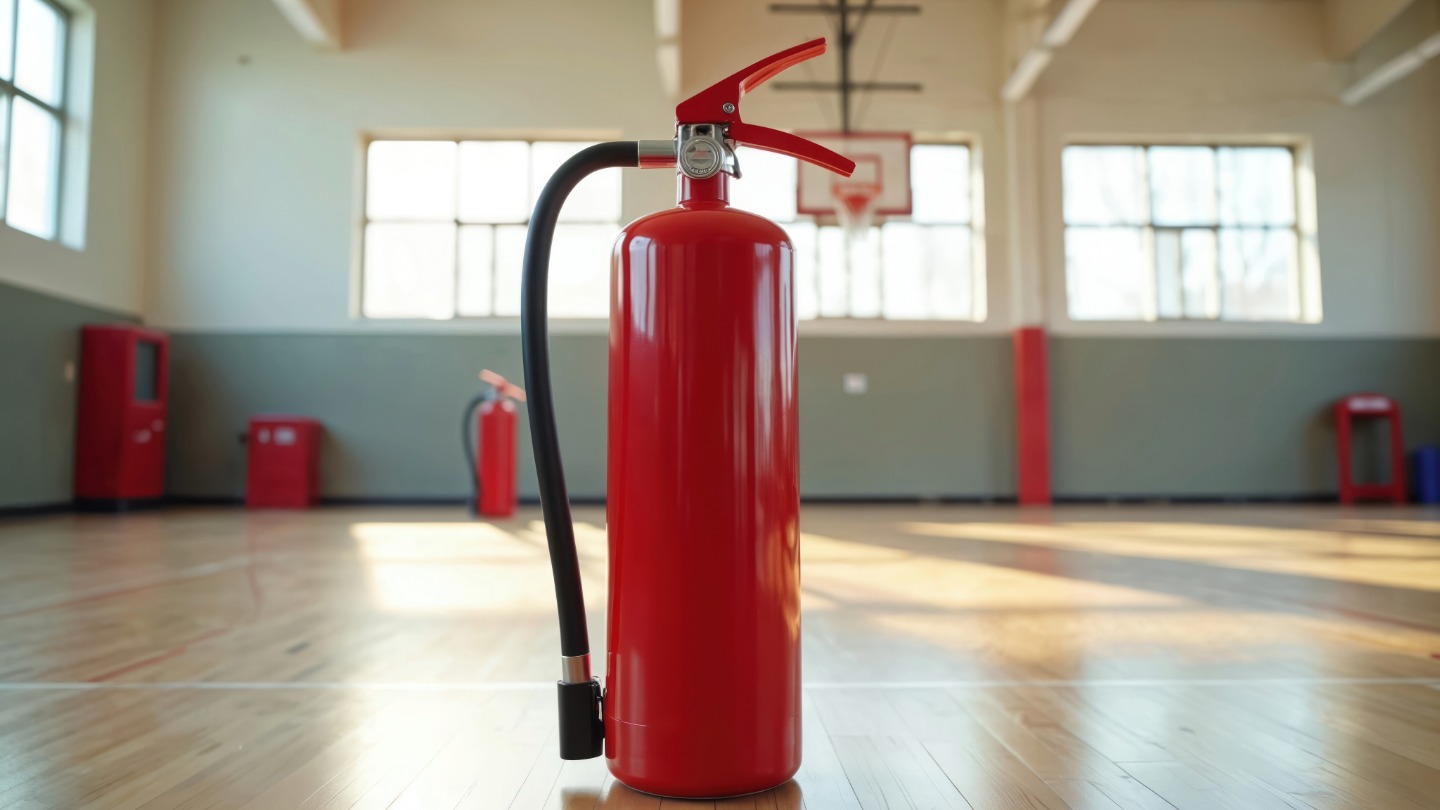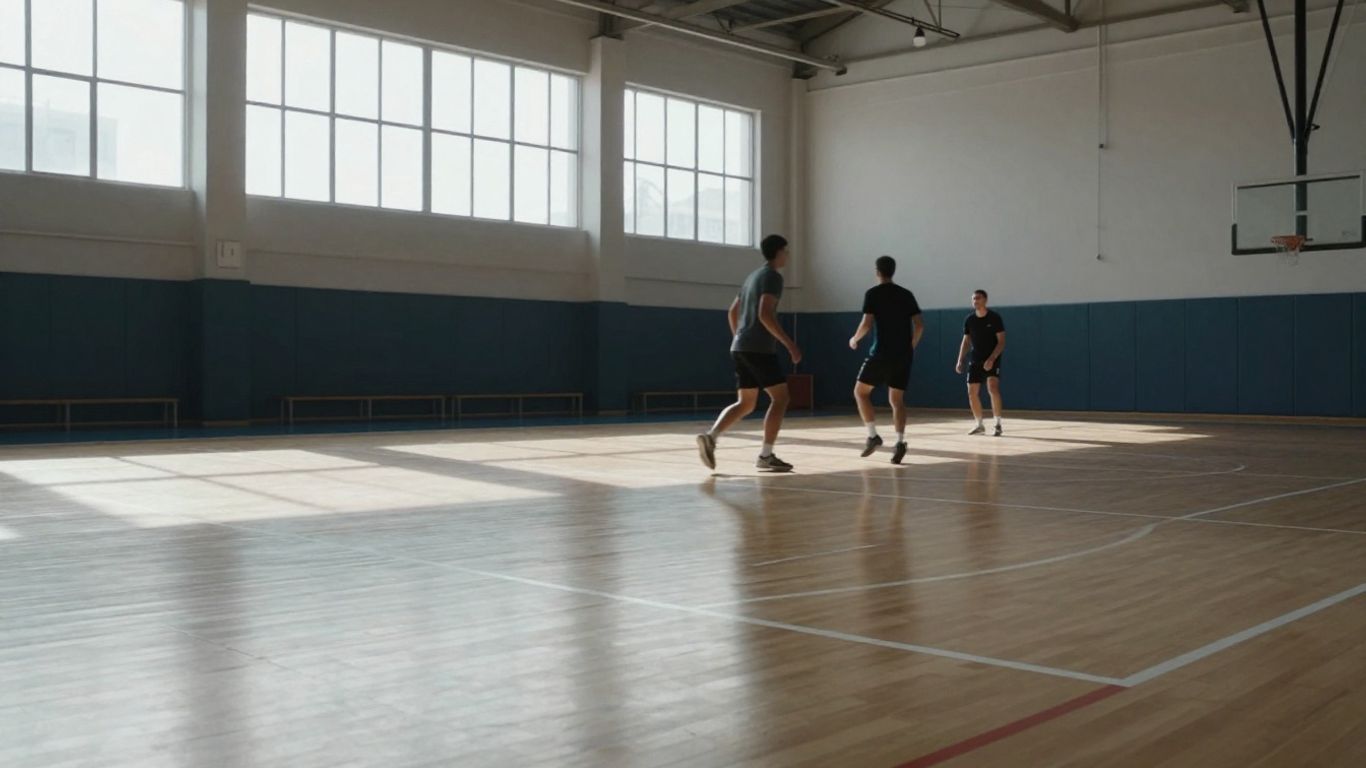When it comes to flooring for busy places, especially sports halls, two names often pop up: Granwood and Junckers. Both have been around for ages and are known for making really tough floors. But how do they actually stack up against each other? This article will dig into what makes each one special, looking at how they’re made, how they get put in, and what they’re like to live with. We’ll find out which one might be the best fit for different situations, focusing on their staying power.
Key Takeaways
- Granwood uses a unique composite material, giving it a distinct feel and look.
- Junckers, on the other hand, relies on solid wood, which has its own set of advantages for certain uses.
- Installing and looking after these floors can be quite different, impacting their overall cost and longevity.
- Both flooring types have a strong history in sports, but they offer different benefits for athletes.
- Considering the long-term costs and environmental impact is just as important as the initial price tag.
.
Granwood vs Junckers: A Legacy of Durability
Pioneering Flooring Solutions
Both Granwood and Junckers boast long histories in the flooring industry. Granwood, with its composite construction, emerged as a popular choice for schools and public buildings due to its hard-wearing nature. Junckers, on the other hand, established itself as a leader in solid hardwood flooring, particularly for sports applications. Their early innovations set benchmarks for durability and performance that continue to influence flooring design today. It’s interesting to see how these two companies have shaped the industry.
Enduring Performance in High-Traffic Areas
One of the key reasons for the lasting success of both Granwood and Junckers is their ability to withstand heavy use. Granwood floors are known for their resistance to wear and tear in busy environments, such as school halls and factories. Junckers floors, designed with robust solid wood, excel in sports halls and dance studios where they endure constant impact and movement. This enduring performance makes them a cost-effective choice for areas where longevity is paramount. I remember seeing Granwood in my old school, and it looked like it had been there forever!
Craftsmanship and Longevity
Both Granwood and Junckers place a strong emphasis on quality craftsmanship. Granwood’s manufacturing process involves carefully combining wood particles and cement to create a dense, durable material. Junckers uses high-quality timber and precise engineering to produce floors that are built to last. This commitment to craftsmanship, combined with the inherent properties of their materials, ensures that both Granwood and Junckers floors offer exceptional longevity. It’s this attention to detail that sets them apart. You can find sports coatings that help extend the life of your flooring.
Choosing between Granwood and Junckers often comes down to specific needs and preferences. Granwood offers a robust, cost-effective solution for high-traffic areas, while Junckers provides the natural beauty and performance of solid hardwood. Both represent a significant investment in long-term durability and quality.
Material Composition and Resilience

Granwood’s Unique Composite Build
Granwood flooring stands out because of its distinctive composition. It’s not just wood; it’s a carefully crafted composite material. This involves wood fibres, often from hardwoods, mixed with cement. The result is a dense, incredibly hard-wearing surface. This unique blend gives Granwood its characteristic strength and resistance to wear, making it a popular choice for areas expecting heavy use. The specific ratio of wood to cement is a closely guarded secret, but it’s this balance that gives Granwood its edge. It’s a bit like concrete, but with the added benefit of some give and spring, thanks to the wood fibres. For older Granwood floors, epoxy coatings can extend their lifespan.
Junckers’ Solid Wood Engineering
In contrast to Granwood’s composite nature, Junckers flooring relies on the inherent strength and beauty of solid hardwood. Each plank is made from carefully selected timber, often beech, ash, or oak. Junckers uses a multi-layer construction, where several layers of solid wood are glued together with the grains running in different directions. This engineered approach minimises the natural expansion and contraction of wood, making it more stable and less prone to warping or cupping. The surface layer is the wear layer, and its thickness determines how many times the floor can be sanded and refinished over its lifespan. Junckers floors are known for their consistent quality and the natural warmth they bring to a space.
Impact Resistance and Wear Characteristics
Both Granwood and Junckers floors are designed to withstand a lot of punishment, but they do so in different ways. Granwood’s cement-wood composite gives it exceptional resistance to indentation and crushing. It can handle heavy loads and constant foot traffic without showing signs of wear and tear. Junckers, being solid wood, is more susceptible to scratching and denting, especially from sharp objects. However, its ability to be sanded and refinished means that surface damage can be easily repaired, restoring the floor to its original condition. The choice between the two often comes down to the specific needs of the environment. For example, a school hall might benefit from Granwood’s resilience, while a sports hall might prefer Junckers’ shock-absorbing qualities and repairability.
Consider the following when evaluating impact resistance:
Type of traffic (foot, wheeled, heavy equipment).
Frequency of use.
Potential for impacts (dropping weights, moving furniture).
Maintenance schedule.
Here’s a simple comparison table:
| Feature | Granwood | Junckers |
|---|---|---|
| Material | Wood-cement composite | Solid hardwood (engineered construction) |
| Impact Resistance | Excellent | Good (repairable) |
| Scratch Resistance | Good | Moderate (repairable) |
| Wear Resistance | Excellent | Good (dependent on wear layer thickness) |
Installation and Maintenance Considerations

Granwood’s Installation Process
Granwood flooring, with its unique composition, typically requires a skilled installation team. The process often involves preparing the subfloor meticulously to ensure a level and stable base. Proper damp-proofing is essential to prevent moisture-related issues down the line. The blocks are then laid, often in a specific pattern, and secured using appropriate adhesives. Finally, the surface is sanded and sealed to provide a durable and aesthetically pleasing finish. It’s a job best left to the pros, really.
Junckers’ Fitting Requirements
Junckers flooring, being a solid hardwood system, has its own set of installation demands. Acclimatisation is key; the wood needs to adjust to the environment’s temperature and humidity before fitting. This helps minimise expansion and contraction after installation. The fitting itself can involve various methods, including clip systems or traditional nailing, depending on the specific Junckers product. A consistent subfloor is also important, just like with Granwood.
Routine Care for Optimal Lifespan
Both Granwood and Junckers floors benefit from regular maintenance to ensure a long and happy life. Here’s a quick rundown:
- Granwood: Regular sweeping and mopping with appropriate cleaning solutions are usually sufficient. Avoid harsh chemicals that could damage the surface. Re-sealing may be required periodically, depending on wear and tear. Consider epoxy surfacing to extend the life of existing Granwood blocks.
- Junckers: Sweeping or vacuuming to remove dirt and grit is essential. Use a damp mop with a wood-specific cleaner. Avoid excessive water, which can seep into the joints and cause damage. Periodic re-oiling or lacquering will help maintain the floor’s appearance and protect the wood.
- General Tips: Use mats at entrances to trap dirt and moisture. Fit felt pads to the feet of furniture to prevent scratches. Address spills promptly to avoid staining.
.
Proper maintenance is not just about keeping your floor looking good; it’s about protecting your investment and ensuring it lasts for years to come. Neglecting routine care can lead to costly repairs or even premature replacement.
Performance in Sporting Environments
Granwood’s Athletic Prowess
Granwood flooring has a long history in sports halls, particularly in older buildings. It’s known for its hard-wearing nature, which makes it suitable for a variety of sports. The surface provides a decent level of grip, reducing the risk of slips and falls. However, it’s worth noting that Granwood can become quite hard over time, which might affect player comfort during prolonged use. It’s a solid choice for multi-sport environments where durability is key, but perhaps not the top pick for specialised, high-performance athletic activities. For example, consider the importance of sports flooring material when selecting the right surface.
Junckers’ Sports Flooring Heritage
Junckers, on the other hand, has a strong reputation for providing high-quality sports flooring solutions. Their solid hardwood floors are designed to meet the specific needs of various sports, from basketball to badminton. Junckers floors offer excellent ball bounce and consistent playing conditions. The sprung construction of many Junckers systems also provides a degree of shock absorption, which can help to reduce the risk of injuries. It’s a popular choice for professional sports venues and training facilities.
Shock Absorption and Player Comfort
When it comes to player comfort and safety, the shock absorption properties of a sports floor are crucial. Here’s a quick comparison:
| Feature | Granwood | Junckers |
|---|---|---|
| Shock Absorption | Moderate | Good to Excellent |
| Comfort Level | Can be hard | Generally Comfortable |
| Injury Risk | Higher (potential) | Lower (potential) |
Junckers typically offers better shock absorption due to its sprung construction, which can lead to reduced fatigue and a lower risk of impact injuries. Granwood, while durable, may not provide the same level of cushioning. This is something to consider carefully, especially for sports that involve a lot of jumping or running.
Choosing the right sports flooring isn’t just about performance; it’s also about protecting athletes. A floor with good shock absorption can make a big difference in reducing the long-term impact on joints and muscles.
Ultimately, the best choice depends on the specific needs of the sports being played and the priorities of the facility. Consider these points:
- Frequency of use
- Types of sports played
- Budget constraints
.
Aesthetic Appeal and Design Versatility
Granwood’s Classic Finishes
Granwood, with its heritage firmly rooted in practical applications, might not be the first choice for those seeking high-end aesthetics. However, its appeal lies in its understated, classic look. Think of it as the reliable, comfortable pair of shoes you reach for every time. The finishes are typically straightforward, focusing on durability and ease of maintenance rather than elaborate designs. This simplicity can be a real asset in spaces where functionality trumps flashy visuals. It offers a sense of timelessness, blending seamlessly into various architectural styles without overpowering the overall design.
Junckers’ Range of Wood Species
Junckers excels in providing a wide array of aesthetic options. Their solid wood flooring comes in various wood species, each offering a unique grain pattern and colour. From the light, airy feel of beech to the rich, warm tones of oak, there’s a Junckers floor to suit almost any design vision. This variety allows for a high degree of customisation, enabling architects and designers to create spaces that are both visually appealing and reflective of the intended atmosphere. The natural beauty of the wood shines through, adding a touch of elegance and sophistication to any environment.
Customisation Options for Modern Spaces
Both Granwood and Junckers offer customisation, though in different ways. Junckers provides flexibility through its range of wood species and finishing options, allowing for tailored looks that meet specific design requirements. Granwood, while more limited in its base aesthetic, can be customised with line markings and specific colour coatings, particularly relevant in sports settings.
Ultimately, the choice between Granwood and Junckers depends on the desired aesthetic and the specific needs of the space. Junckers offers a broader palette of natural wood aesthetics, while Granwood provides a more utilitarian, customisable solution, particularly suited for environments where performance is paramount.
Here’s a quick comparison:
- Junckers: Wide range of wood species, various finishes, suitable for diverse aesthetics.
- Granwood: Classic, understated look, customisable with line markings and coatings.
- Both: Offer some level of customisation to meet specific project needs.
.
For example, Courtship Flooring installed a new Junckers sports floor at Harris Academy, showing how it can transform a space.
Cost-Effectiveness Over Time
Initial Investment Comparison
When weighing up Granwood and Junckers, the initial outlay is a key consideration. Generally, Granwood tends to present a lower upfront cost compared to Junckers. This is largely due to the materials and manufacturing processes involved. However, it’s important to factor in the subfloor preparation, which can influence the overall initial cost for both systems. Don’t forget to get several quotes and compare like-for-like, including installation.
Long-Term Maintenance Expenses
Maintenance is where the true cost-effectiveness reveals itself. While Granwood might be cheaper to install, its maintenance can be more involved. This often includes regular sanding and resealing to maintain its performance characteristics. Junckers, on the other hand, often requires less frequent, but potentially more costly, maintenance procedures. Here’s a quick comparison:
| Feature | Granwood | Junckers |
|---|---|---|
| Sanding/Sealing | More frequent (e.g., every 2-3 years) | Less frequent (e.g., every 5-7 years) |
| Daily Cleaning | Standard cleaning products | Specialist wood floor cleaners |
| Repair Costs | Can be higher for significant damage | Can be lower due to individual board replacement Liskeard Leisure Centre |
Return on Investment for Both Systems
Calculating the return on investment (ROI) requires a long-term perspective. While Granwood’s initial cost is lower, the accumulated maintenance expenses over, say, 20 years might exceed those of a Junckers system. Junckers’ durability and potentially longer lifespan can translate to a better ROI, especially in high-traffic areas. Consider the following factors when assessing ROI:
- Lifespan of the flooring
- Frequency and cost of maintenance
- Potential downtime for repairs or resurfacing
- Impact on user experience (e.g., sports performance)
.
Ultimately, the most cost-effective choice depends on the specific application, budget constraints, and long-term maintenance strategy. A thorough cost analysis, considering both initial and ongoing expenses, is essential for making an informed decision.
Environmental Impact and Sustainability
Granwood’s Eco-Friendly Credentials
Granwood flooring boasts some impressive environmental credentials. Its composition often includes recycled materials, reducing the demand for virgin resources. The manufacturing processes are designed to minimise waste, and the long lifespan of Granwood floors contributes to sustainability by reducing the frequency of replacements.
Junckers’ Sustainable Sourcing
Junckers places a strong emphasis on sustainable sourcing. They are committed to using wood from responsibly managed forests, often certified by organisations like the Forest Stewardship Council (FSC). This ensures that the timber used in their flooring is harvested in a way that protects biodiversity and supports local communities. Junckers also actively works to reduce waste in their production processes.
Recyclability and Lifecycle Assessment
Considering the full lifecycle of both flooring options is important. Granwood, due to its composite nature, can present challenges in terms of recyclability at the end of its life. Junckers, being solid wood, is more readily recyclable or can be repurposed. A comprehensive lifecycle assessment would consider the environmental impact of raw material extraction, manufacturing, transportation, installation, maintenance, and end-of-life disposal or recycling.
Evaluating the environmental impact involves looking at carbon footprint, resource depletion, and waste generation. Both Granwood and Junckers are striving to improve their sustainability practises, but consumers should carefully consider their specific needs and priorities when making a choice.
Here’s a quick comparison:
- Granwood: Often incorporates recycled content, durable, but recyclability can be complex.
- Junckers: Uses sustainably sourced wood, readily recyclable, but relies on natural resources.
- Both: Aim to minimise waste during production, long lifespan reduces replacement frequency.
.
Looking after our planet is super important, especially when we build things. We make sure our sports floors are good for the Earth, using smart ways to build and fix them. Want to know more about how we help the environment? Check out our website!
Conclusion: Picking Your Champion
So, after all that, what’s the verdict? Both Granwood and Junckers are top-notch choices for sports floors, no doubt about it. It really comes down to what you need and what you’re looking for. If you’re after something that’s been around forever and has a solid track record for being tough as nails, Granwood might be your go-to. It’s got that classic feel, and it can take a real beating. But then you’ve got Junckers, which is also super durable and looks great, plus it’s got a bit more of a modern vibe with its pre-finished options. Think about your budget, how much traffic the floor will see, and what kind of look you’re going for. Either way, you’re getting a quality floor that should last ages. It’s like choosing between two really good cars; they both get the job done, just in slightly different ways.
Comparing Different Sports Flooring Materials: Find Your Match
Get a comparative quote → Wooden Sports Flooring
Frequently Asked Questions
What makes Granwood flooring so tough?
Granwood floors are made from a special mix of wood fibres, minerals, and binders, which makes them super strong and able to handle lots of foot traffic.
How are Junckers floors different in their make-up?
Junckers floors are crafted from solid wood, like beech or maple. They’re known for being very durable and lasting a long time, especially in places where people move around a lot.
Are these floors hard to keep clean?
Both Granwood and Junckers floors are pretty easy to look after. Regular cleaning and occasional special care will keep them looking good and performing well for many years.
Can these floors be used for sports?
Yes, both types of flooring are often used in sports halls and gyms because they can handle lots of activity and provide good grip and comfort for athletes.
Do they look different?
Granwood has a classic, uniform look, while Junckers offers a variety of wood types and finishes, giving you more choices for how your space looks.
Are they expensive in the long run?
While the first cost might be different, both Granwood and Junckers are good value over time because they last so long and don’t need too much fixing up.


